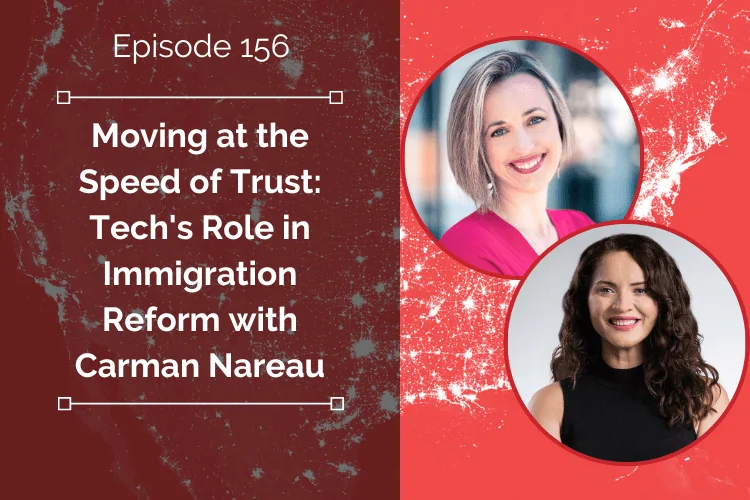The world of immigration is a complex maze of policies and procedures. However, innovative minds are working tirelessly to harness the power of technology to navigate this intricate field. One such visionary is Carmen Nareau, the driving force behind immigration technology at the Emerson Collective.
Emerson Collective was founded by Laurene Powell Jobs, the widow of Apple co-founder Steve Jobs, and who continues to carry on an impactful legacy through her organization. The Emerson Collective focuses on various key issue areas such as immigration, education, environment, public health, and racial equity. Using a broad range of tools, including technology, they aim to find sustainable solutions that create systemic change.
Carmen provides an in-depth discussion about the exciting developments in the field of immigration technology.
The Changing Landscape Of Immigration In The Startup World
- Technologists have a crucial role in improving immigration policy, with data becoming a key tool in driving reform. For instance, data on demographic trends can be used to prepare public institutions and nonprofits for future changes in immigrant populations.
- There’s also a shift in immigration trends among startup founders. Collecting data on immigrant entrepreneurs and their choice of location for starting businesses can contribute to creating supportive policies and encouraging investment in tech hubs outside traditional locations like San Francisco and New York.
The Emerson Collective’s New Initiative – The Extraordinary Ability Boot Camp
- This initiative is designed to act as a beacon of hope for immigration reform, fostering inclusivity and diversity.
- This project is a part of their mission to use technology and data tools to support nonprofits and push for systemic changes in the field of immigration.
- The initiative is part of the Emerson Collective’s larger vision to foster trust and understanding between technologists and immigrants.
- It also aims to empower nonprofits with technology tools, thereby furthering the potential of tech in establishing inclusive policies.
How The Emerson Collective’s Technological Tools Are Empowering Nonprofits
- The Emerson Collective develops technology tools that fill the gaps in the technology needs of nonprofits, with a focus on immigration issues. The collective works in collaboration with nonprofits to understand their pain points and find off-the-shelf solutions or support them financially when possible.
- The collective also focuses on the prototyping and building of actual products, which can either be done in collaboration with a partner or in a wider field for the development of greenfield products. These tools are aimed at augmenting social impact across the immigration field.
- One of the tools being developed is a system that can analyze public data sets, specifically from the Department of Justice. This tool aims to provide valuable insights about immigration trends and demographic changes, which can empower nonprofits to better prepare and respond to these changes.
- The Emerson Collective’s technology team is working on creating collaborative infrastructure. This involves bringing together multiple stakeholders, providing them with useful technology tools, and helping them all simultaneously. This approach is aimed at fostering systemic change, which the collective believes moves at the speed of trust.
The integration of technology and immigration is a compelling area of study and practice, presenting opportunities for impactful change. The intersection of these two fields can drive meaningful reform and foster an inclusive future. For technologists and policymakers alike, the challenge is clear – to build trust, foster collaboration, and harness the power of technology to drive systemic change in the world of immigration.
If you want to learn more about Sophie Alcorn Podcast, check out https://www.alcorn.law/podcast/sap156




